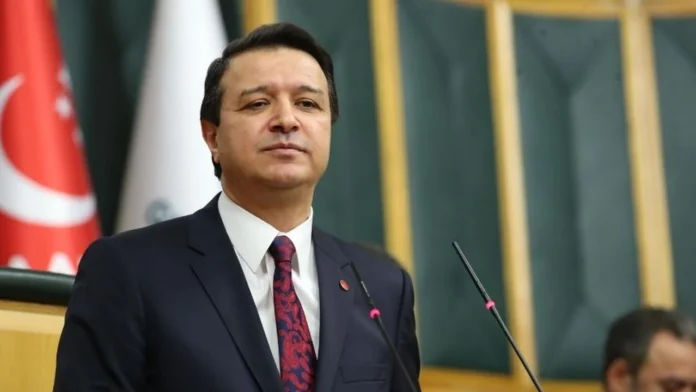Mahmut Arıkan, leader of the Islamist opposition Felicity Party (SP), said Wednesday Turkey should resolve widespread rights violations before debating potential visits to jailed Kurdistan Workers’ Party (PKK) leader Abdullah Öcalan as part of a peace initiative, Turkish Minute reported.
Speaking at his party’s parliamentary group meeting, Arıkan criticized both the governing Justice and Development Party (AKP) and the main opposition Republican People’s Party (CHP) for reducing the country’s political agenda to disputes over the peace process with the PKK.
He said the renewed focus on possible contact with Öcalan, who has been held on İmralı Island since 1999 and is serving a life sentence for leading the PKK, distracted from what he described as more urgent problems involving justice, rights and accountability.
The PKK, which Turkey and its Western allies have designated as a terrorist organization, has waged an armed campaign against the Turkish state since 1984 that has killed more than 40,000 people.
“Turkey’s problems and hopes are bigger than İmralı or Silivri,” Arıkan said, referring to İmralı Island, where Öcalan’s prison is located, and the high-security Marmara Prison located in the Silivri district of İstanbul, where political detainees are held.
Arıkan argued that meaningful social peace required the restoration of rights that he said had been denied to broad segments of society, calling for steps grounded in “justice and the rule of law.”
He stated that Turkey needed to focus on many groups whose grievances remain unaddressed before debating visits to Öcalan, adding: “Journalists imprisoned just for a tweet should be allowed to return to their newsrooms. Military academy students who are unjustly jailed should go home. Academics dismissed for peace petitions should return to their lecterns. People purged under emergency decrees should regain their jobs. Workers punished for exercising their union rights should go back to their factories.”
The SP leader also urged the authorities to comply with binding rulings of Turkey’s Constitutional Court and the European Court of Human Rights (ECtHR), saying no democratic reform is possible without adherence to these decisions.
Turkey’s previous peace process with the outlawed PKK collapsed in 2015 after two years of talks, leading to renewed conflict.
In 2016 more than 2,000 scholars signed the “Academics for Peace” petition calling for an end to security operations in Turkey’s Kurdish-majority southeast. The government accused the signatories of spreading “terrorist propaganda,” leading to dismissals, prosecutions and overseas travel bans.
The situation further deteriorated after a coup attempt in July 2016, when the government declared a state of emergency and removed over 130,000 public servants — including judges, teachers and academics as well as soldiers — by decree-laws issued without judicial or parliamentary oversight. Many of those dismissed under the emergency decrees, commonly referred to as “KHK victims,” continue to face employment bans and severe restrictions on their civil rights.
Among the groups Arıkan referenced were also military cadets, hundreds of whom were expelled and prosecuted on coup-related charges despite insisting they acted on orders during the chaos of the night. Dozens were handed down life sentences, although some convictions were later overturned by higher courts in subsequent years.















